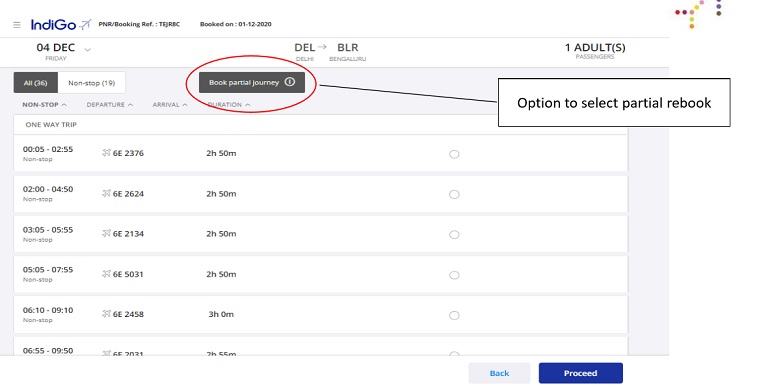Budget carrier IndiGo on Tuesday upgraded its Plan B options which will allow those customers whose connecting flight has been canceled, to either rebook partially – from origin till transit station or from the transit station to the destination – or take a refund for the unused sector.
The new option has been made available across the airline’s website and mobile app.
The airline said that this new option will provide greater flexibility to customers in case of limited options, delays, or cancellations, especially owing to fog or other adverse weather conditions.
The option will be live in case of flight cancellation and visible as shown below.

“We are pleased to update our Plan B options for connecting flights. This additional alternative will allow customers to rebook or refund a part of their journey as per availability, offering more flexibility and choice. It will certainly help customers in situations of extreme weather conditions, wherein the chances of flights getting delayed or canceled increase. We strive to keep adding new ways to offer hassle-free travel experience to our customers, on-board our lean clean flying machines,” IndiGo’s Chief Commercial Officer William Boulter said in a company statement.
Also, a new potentially more infectious variant of the novel coronavirus that causes COVID-19 has been found in Britain in cases linked to South Africa, British Health Secretary Matt Hancock said. South Africa’s health department said last week that a new genetic mutation of the virus had been discovered and might be responsible for a recent surge in infections there.











